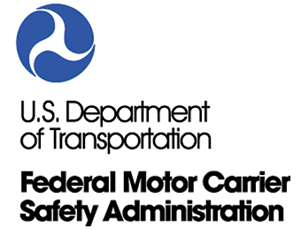Senior Reporter
FMCSA Proposes Two-Year Delay of Entry-Level Driver Training Rule Due to IT Glitches

[Stay on top of transportation news: Get TTNews in your inbox.]
Federal trucking regulators have proposed a two-year delay for compliance with certain provisions in the Entry Level Driver Training rule to allow more time for development of the secure electronic transfer of information to the certified training provider registry and state driver licensing agencies.
“The proposed two-year extension would delay the date by which training providers must begin uploading driver-specific training certification information into the Training Provider Registry, an electronic database that will contain entry level driver training information,” the Federal Motor Carrier Safety Administration announced July 18 in the Federal Register.
“It would also delay the date by which state driver licensing agencies must confirm that applicants for a commercial driver’s license have complied with ELDT requirements prior to taking a specified knowledge or skills test,” the agency said.

Further, the proposed rule would provide FMCSA additional time to complete development of the electronic interface that will receive and store ELDT certification information from training providers and transmit that information to the state driver licensing agencies. The delay also would give state driver licensing agencies sufficient time to modify their information technology systems and procedures to accommodate their receipt of driver-specific ELDT data from the training provider registry, the agency said.
The compliance date for the two provisions of the 2016 final rule have been extended from Feb. 7, 2020, to Feb. 7, 2022, FMCSA said. The agency said it will accept public comment until August 19.
FMCSA said it does not propose any other substantive changes to the requirements established by the 2016 ELDT final rule, and that new drivers would still have to comply with the final ELDT rule’s training requirements beginning on Feb. 7, 2020.

Potter
“American Trucking Associations strongly supports the entry level driver training rule,” said Abigail Potter, an executive with the federation. “But we definitely have concerns that delaying these two very important aspects of the rule could have a significant impact on the enforcement and the effectiveness of the rule.”
The delay would likely eliminate the responsibility of state driver licensing agencies to verify that new drivers had completed all their required training before issuing a CDL, Potter said. “There’s no requirement for the licensing agencies to enforce the ELDT rule when they issue a CDL,” Potter added.
The Commercial Vehicle Training Association said in a statement: “Unfortunately, we believe the decision to delay the individual certification is particularly problematic for enforcement and safety reasons. CVTA urges the FMCSA to consider establishing a database to accept individual certifications.”
An FMCSA spokesman did not respond to requests for comment.
The proposal comes after FMCSA said last month it has been working on a temporary fix to solve a system glitch that was expected to delay a requirement that electronic information system transfers permit secure communication among driver training schools, state licensing agencies and FMCSA. Transfers to FMCSA from the schools are needed to validate that new drivers successfully have completed their classroom and driving skills requirements. FMCSA is then required to forward the information electronically to states so drivers won’t face delays in obtaining their commercial driver licenses, FMCSA said.

Students practice their skills at the Truck Training America commercial driving school in Shepherdsville, Ky., in 2016. (John Sommers II for Transport Topics)
The agency has not explained the reasons for the information “system glitch.”
The 2016 entry-level driver training rule requires that for drivers to receive Class A or Class B commercial driver licenses, training providers must, at a minimum, provide instruction in a training curriculum that meets all the standards established in the training rule and must also meet other eligibility requirements in order to be listed on FMCSA’s Training Provider Registry. Training providers must also attest that they meet the specified requirements, and in the event of an FMCSA audit or investigation of the provider, must supply documentation to verify their compliance.
FMCSA previously acknowledged that the American Association of Motor Vehicle Administrators and individual state driver licensing agencies have raised important questions and concerns regarding transmittal of the applicant information through the Commercial Driver’s License Information System.
Accordingly, the agency said that it “will work closely with American Association of Motor Vehicle Administrators and the state driver licensing agencies during the implementation phase to address these issues in a way that minimizes the administrative burden on states to the greatest extent possible.”




